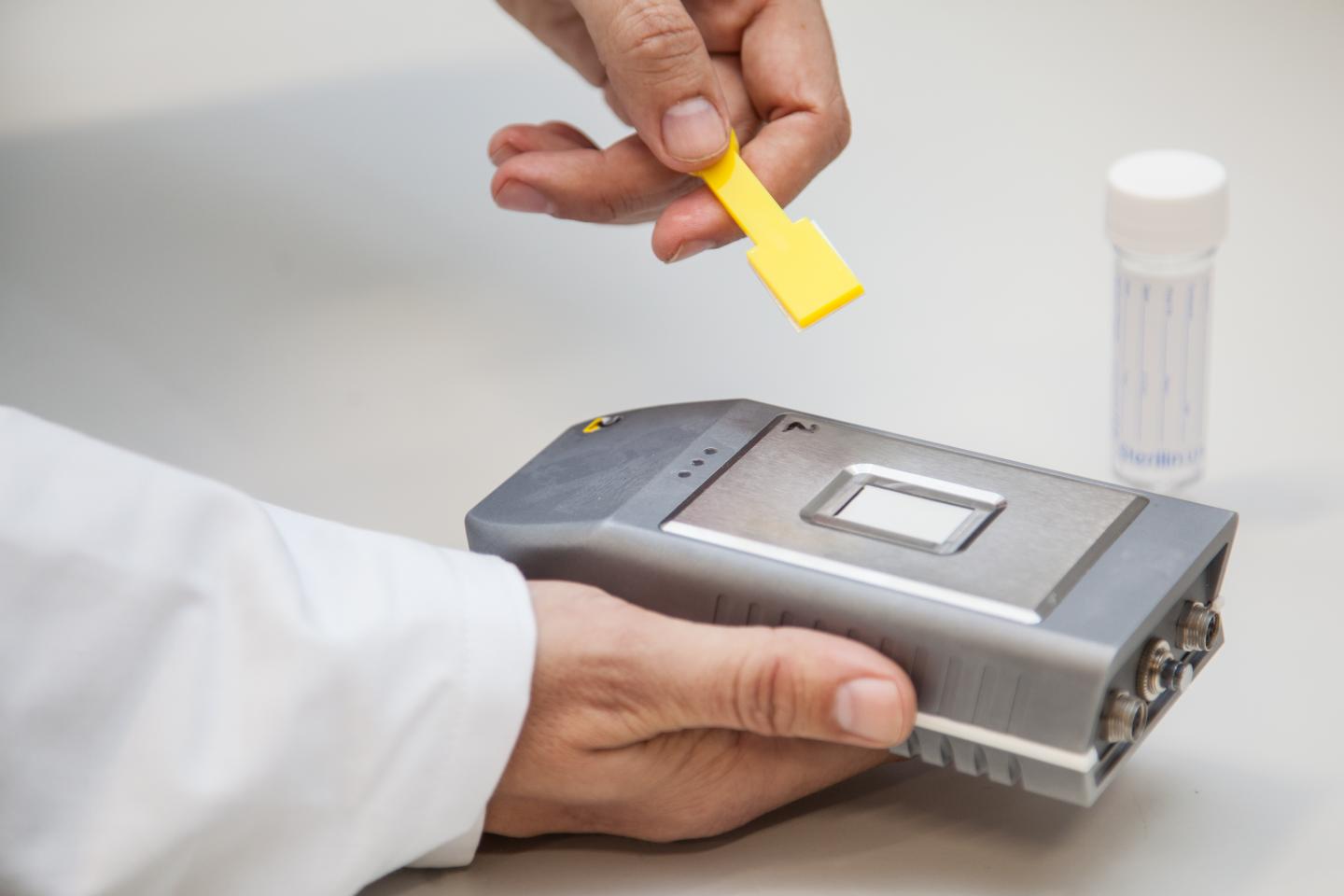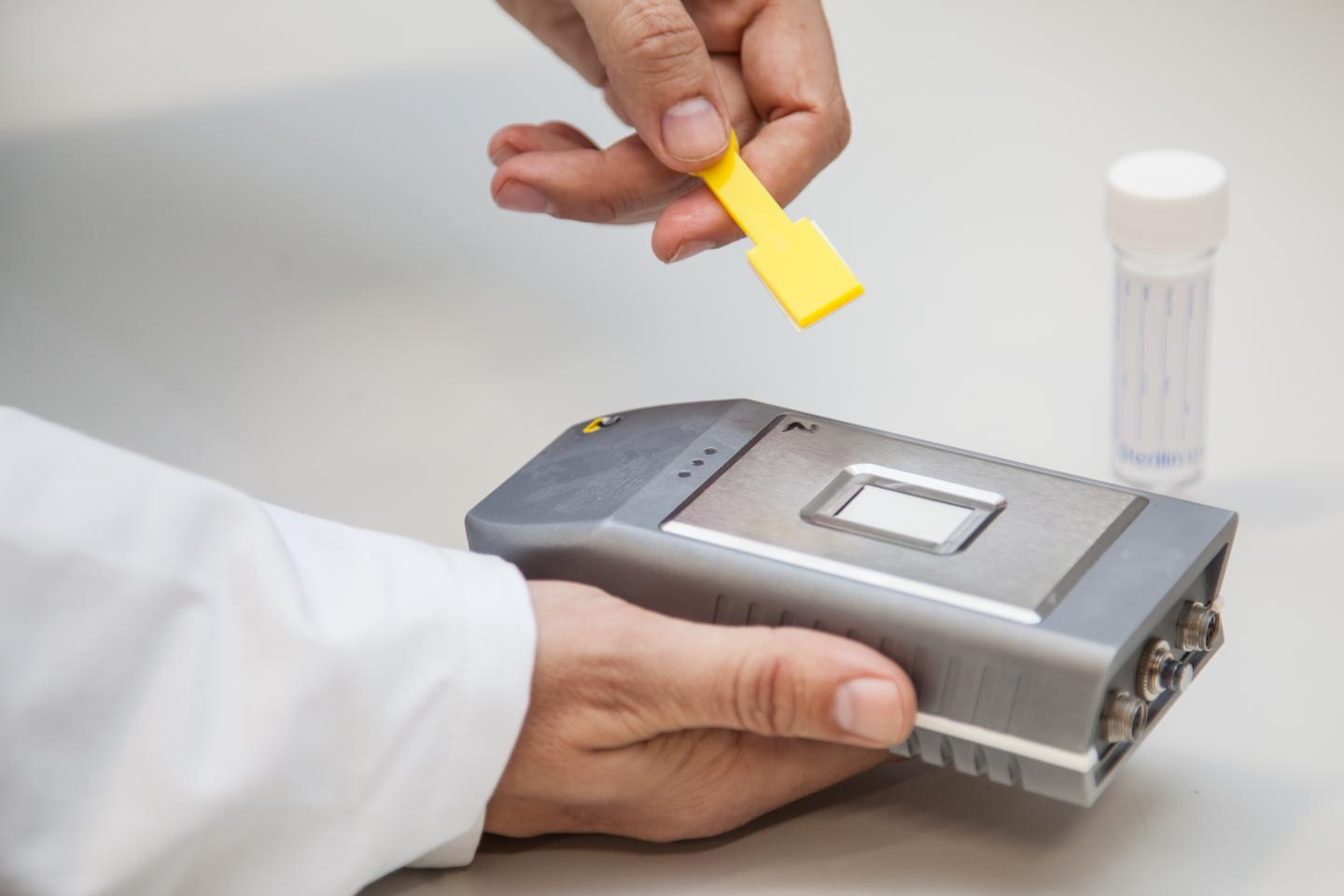
Credit: Swansea University
This technology is now being taken forward commercially through the recently formed spin-out company PulmonIR Ltd.
Clinical trials in collaboration with Cwm Taf University Health Board to validate the technology are now underway following a capital grant from Welsh Government health technology funding and a substantial investment into the new business from a syndicate including IP Group, Finance Wales and the Swansea University Innovation Fund.
COPD affects over 330 million people worldwide at an estimated cost to healthcare providers of over $2 trillion a year. The primary cause, cigarette smoking and/or exposure to tobacco smoke, leads to irritated and inflamed lungs, causing permanent scarring; a breakdown of lung tissue and a narrowing of the airways and air sacs.
Whilst irreversible, symptoms including breathlessness, a persistent cough, and regular chest infections can be treated. Where the causes can be eliminated, the disease can be slowed, giving a huge boost to the quality of life a sufferer can expect. Left untreated however, the condition becomes exacerbated, leading to frequent hospitalisation, at a current annual cost of £4 billion to the NHS.
Professor Lewis explains: "Where COPD is present, the surface of molecules within a sample of sputum (coughed up mucus) contains a specific configuration of sugars. We discovered that by shining beams of infra-red light onto a sample, you could detect COPD from the unique frequency of infrared light bouncing off the sample. Using this technology, health professionals could detect COPD within as little as ten minutes."
Professor Lewis previously received support for commercialising his idea from InvestorG8, Swansea University's highly successful investment readiness programme funded by the Welsh Government A4B program. This funding was used to develop a disposable sample strip that can be used in conjunction with a handheld infrared device, to make it easier for clinicians and patients to diagnose and monitor COPD.
Vaughan Gething AM, Cabinet Secretary for Health, Well-being and Sport, said: "This technology could speed up diagnosis and improve monitoring of COPD, which could bring real benefits to patients. Not only could this help the NHS work more efficiently, but the spin-out company has the potential to bring economic benefits and high-value jobs to Wales. I'm delighted to support this development and I'm pleased that respiratory specialists at Cwm Taf Health Board are participating in the clinical trials."
Following completion of this research, PulmonIR Ltd was formed in order to secure the venture capital required for clinical trials. These trials are being used to validate high-throughput testing of patient samples in the laboratory, to field test portable infrared spectrometers, and to compare the clinical results obtained against spirometry, the currently accepted clinical 'gold standard'.
The trials began in August 2016 in collaboration with respiratory consultant Dr Sadiyah Hand of Cwm Taf University Health Board.
Once the preliminary clinical trials have been completed, further investment will be required to complete the development of a clinically-validated system that can be put on sale in the UK and overseas.
###
Media Contact
Catrin Newman
[email protected]
179-251-3454
@swanseauni
http://www.swansea.ac.uk/
############
Story Source: Materials provided by Scienmag




